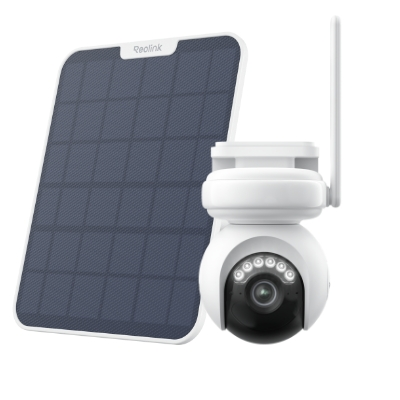How to Deal with Bad Neighbors: Expert Tips for Peaceful Living

Having difficult or disruptive neighbors can turn living next door into a nightmare. Dealing with inconsiderate, noisy, toxic, or hostile neighbors is a common problem that leads to constant stress and conflict. Knowing how to handle bad neighbors tactfully is crucial for maintaining peace of mind and a harmonious community. In this article, we provide expert tips on how to deal with bad neighbors effectively.
- 1. Try to Establish Positive Relationships from the Beginning
- 2. Stay Calm and Objective
- 3. Open Communications
- 4. Create Clear Boundaries
- 5. Protect Valuable Property
- 6. Invest in Home Security
- 7. Document Important Incidents
- 8. Check Out Local Regulations and Laws
- 9. Seek Assistance from Mediators
- 10. Talk to a Lawyer
- 11. Call the Police
- FAQs
- Conclusion
1. Try to Establish Positive Relationships from the Beginning
When moving into a new neighborhood, introduce yourself to nearby residents and start on friendly terms. Being open, polite, and considerate from the start can prevent many issues. Consider welcoming new neighbors with a card or small gift to set a positive precedent.
Knowing the neighbors can also provide context for understanding each other's quirks. It is an essential step in how to deal with a bad neighbor. Fostering a sense of community and giving neighbors the benefit of the doubt wherever possible can prevent tensions and help address issues more constructively when they arise.
2. Stay Calm and Objective
When conflicts inevitably occur, try your best to stay calm, rational, and objective. Approaching the situation in an aggressive, emotional, or accusatory manner will only make matters worse. Focus on resolving the specific issues rather than attacking the problem neighbor's character or making assumptions about their motivations.
List concerns and suggestions in a neutral, non-critical tone and allow them to address issues or explain their side. Sometimes, listening to concerns helps deal with a problematic neighbor.
Stay open-minded and collaborative to reach an understanding. Patience and level-headed dealings give diplomacy the best chance of prevailing. It will help you with how to deal with toxic neighbors.
3. Open Communications
Clear, open communications are vital in resolving neighbor disputes. Speaking directly and respectfully with the neighbor about problems as they occur allows them to correct issues and prevents pent-up conflicts.
Write a polite letter or knock on their door to notify them of concerns—like noise late at night or garbage cans left out—before frustration builds. It is an excellent way to deal with mean neighbors.
Listen sincerely as well; misunderstandings may be cleared up by better mutual awareness. Ongoing dialogue in a spirit of compromise, not condemnation, can turn a bad neighbor into a good one. If face-to-face discussions grow too emotional, suggest mediation to facilitate productive conversations. Silence and avoidance will not make problems disappear.
4. Create Clear Boundaries
Setting clear boundaries for what behavior you consider appropriate can also minimize neighbor problems if you want to know how to deal with bad neighbors. Discuss your expectations directly yet diplomatically, backed up by facts rather than accusations. For example, request that they avoid loud noises after 10 pm per local noise ordinances.
Establish how close to the property line they can build fences or structures. Find compromises like scheduling alternating usage of shared driveways or yards. Informing them precisely what kinds of conduct disturb you gives them a fair chance to adapt. Boundaries set the stage for an amicable coexistence. It will help you with the issue of how to make your neighbors move.
5. Protect Valuable Property
Take reasonable precautions to protect your home and valued possessions in case of problematic neighbors. Keep gates, garages, and doors closed and locked at all times. Install lighting around the perimeter of your house and motion sensor lights to deter trespassing. Consider an enclosed, fenced-in backyard if privacy is an issue.
You may install security cameras at entrances or fences as further protection against unwelcome visitors if issues escalate. Removing valuables from cars and lawn equipment from the yard and keeping windows closed at night also helps secure your property.
6. Invest in Home Security
Installing a home security system is a proactive measure to protect against nuisance or hostile neighbors. Security cameras and video doorbells provide evidence if neighbors enter your property or engage in vandalism.
4K continuous recording security camera - Altas PT Ultra
For uninterrupted surveillance around your home, you can consider the Reolink Altas PT Ultra. This battery camera is totally wire-free, friendly for beginners. And its 20,000 mAh battery supports 12-hour recording per day up to 8+ days. Most importantly, this camera has excellent night vision capability and you can enjoy full-color footage day and night.
Industry-leading 4K Continuous Recording Battery Camera
4K UHD Continuous Recording; ColorX Night Vision; Pan & Tilt; Automatic Tracking; All Recordings Stored Locally.
4K UHD 180°Blindspot-free view security camera - Argus 4 Pro
Argus 4 Pro is a 4K wireless color night vision security camera with comprehensive surveillance capabilities. Its 180°ultra-wide-angle Passive Infrared (PIR) sensor ensures no movement goes unnoticed, both indoors and outdoors. The AI analysis further enhances accuracy by detecting significant movement patterns, and providing timely alerts.
Users can customize motion zones and set privacy masks to tailor security settings to their needs. Plus, with smart real-time alerts, you'll receive instant notifications directly to your smartphone via the app. Argus 4 Pro is your reliable partner in safeguarding your property!
4k 180° Wire-free Color Night Vision Camera
4K UHD 180° Blindspot-free View; Color Vision Day and Night; 30% More Battery Life; Dual-band Wi-Fi 6; Smart detection.
For consumers that require full-color night vision without apparent spotlights, the Reolink Argus 4 Pro is an excellent choice. Alternatively, if you want an inexpensive solution that still performs well, the Argus 4 standard version is worth considering.
4k 180° Blindspot-free Wi-Fi 6 Camera
4K UHD 180° Blindspot-free View; Dual-band Wi-Fi 6; Smart detection; Easy Installation Anywhere
Smart 2K+ PoE Video Doorbell with Chime - Reolink Video Doorbell PoE
Reolink Video Doorbells offer an array of impressive features, including 5MP super HD footage and a 180° diagonal viewing angle, ensuring comprehensive coverage of your front door area. Notably, the on-device person detection ensures you receive instant push notifications whenever a visitor arrives.
Smart 5MP Video Doorbell with Chime
5MP Super HD, Person Detection, Power over Ethernet, 180° Diagonal Viewing Angle, Two-Way Audio, High-Quality Night Vision.
7. Document Important Incidents
Keep a written record of any significant incidents involving worrisome neighbor behaviors. Document dates, times, specific actions witnessed, interactions, damages, and other relevant details.
Such documentation serves as objective evidence if problems repeat and legal action becomes necessary. Detailed reports prevent distorted recollections and provide proof of harassment. If your neighbors are annoying intentionally, then it is essential to know how to deal with angry neighbors.
Audio or video recordings also create documentation if obtained legally and ethically. Even if issues seem minor initially, establishing a clear record demonstrates a pattern of objectionable activity over time should matters escalate. Evidence gathering protects you from "your word against theirs" disputes.
8. Check Out Local Regulations and Laws
Learn about local regulations, property laws, homeowner associations, and landlord rules governing your area. These define what practices are or are not legally permissible regarding noise, fences, property lines, leases, parking, etc. Check regulations about how to deal with a bad neighbor to reference in communications with mean neighbors.
Outlining the actual laws or HOA rules they are violating adds weight to requests for compliance. Knowledge of regulations also clarifies when mediators, police, lawyers, or authorities should get involved. Don't assume the neighbors know all ordinances—politely educate them.
9. Seek Assistance from Mediators
If direct resolution proves impossible, enlist a neutral mediator to facilitate discussions and suggest compromises. They can be a legal expert, religious leaders, community liaisons, counselors, or respected peers.
An outside specialist may ease tensions and foster progress where you cannot. Mediation also shows you have made good faith efforts before taking legal action.
Many neighborhood associations offer mediation resources or can connect you with professionals. Be open to fair compromises in mediation. Allow time for its process, and don't give up too quickly. It will help you with how to deal with bad neighbors.
10. Talk to a Lawyer
For issues involving harassment, threats, or property/civil rights infringements by neighbors, discuss options with a lawyer. They can advise whether legal action is recommended and feasible based on documented incidents, applicable laws, and a reasonable chance of resolution. It will be really helpful in matters like how to deal with horrible neighbors.
If necessary, lawyers can guide specific laws and procedures for cease-and-desist orders, restraining orders, lawsuits, or criminal charges. Find lawyers experienced specifically in neighbor disputes and real estate laws. Be aware of the costs involved and focus on legal action only as a last resort if the neighbor refuses accountability.
11. Call the Police
Don't hesitate to call the police if conflicts escalate to emergency levels. Report incidents like vandalism, trespassing, verbal abuse, intimidation, erratic behaviors, violence, unauthorized surveillance, or criminal activity of any kind. The authorities can respond on location, prepare official reports, give warnings, make arrests, and advise on the next steps.
Having police documentation also strengthens your case if you pursue legal action down the road. Calling the police creates an official record of intolerable behavior for future evidence. For proper safety threats—have emergency numbers programmed and don't wait to call.
FAQs
How to ignore bad neighbors?
To mitigate the disturbances caused by bad neighbors, consider getting noise-canceling headphones and a white noise machine to create a peaceful auditory environment. Putting up signs in your front yard can set clear boundaries, while investing in curtains, rugs, and filling your home with furniture can help absorb and reduce noise. Locking your doors ensures your safety, and sealing any cracks in your home further minimizes sound intrusion.
Can security cameras be used to handle difficult neighbors?
Yes, if installed appropriately, security cameras can be beneficial for dealing with bad neighbors. They can deter crimes against your property by problematic neighbors. If issues occur, cameras provide video evidence to document disturbances, trespassing, vandalism, etc. It is an excellent way if you are wondering how to deal with a crazy neighbor.
What should I do if my neighbors are fighting?
Loud, aggressive fights between neighbors should not be ignored. Politely encourage them to resolve differences calmly. Offer to mediate if you have a trusting relationship. Advise involving the police if physical violence seems likely. In extreme cases, call the authorities to intervene or report domestic violence.
Alternatively, register a noise complaint if local ordinances are violated. Your safety is the priority if directly threatened. Keep your distance, and no need to worry about how to deal with unfriendly neighbors.
Conclusion
Having to deal with bad neighbors can undoubtedly be stressful and frustrating. However, proactive solutions are available to defuse tensions and protect your home life from external disruptions. With the right diplomatic mindset, establishing clear boundaries, security precautions, documentation, conflict resolution strategies, understanding of regulations, and assistance from authorities when necessary, you can handle and coexist with even the most horrible neighbors.
Did you have met bad neighbors before? How to deal with bad neighbors? Please share your ideas with us, and let's discuss them together!
Search
Be in the Know
Security insights & offers right into your inbox




